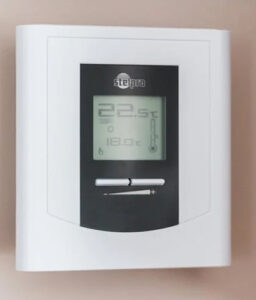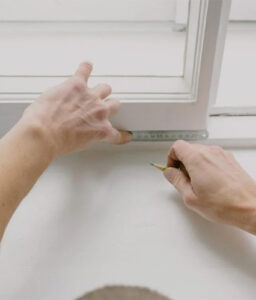SAVE ENERGY AND MONEY
Making key changes to your home could reduce your carbon footprint and save you money.
UK energy bills are set to increase by 10% from 1 October 2024, with the energy price cap rising to £1717 a year.
Mylocaltoolbox.co.uk expert Adam Clark has compiled a few tasks aimed at cutting your household bills and your energy consumption:
Service your boiler – save up to £200
 Typically, this time of year is the best to get an annual boiler service. Before we get into the huge savings on your energy bill, it’s worth pointing out the other benefits that come from an annual service. A registered Gas-Safe Engineer will ensure your boiler is working correctly and detect any potential issues that could result in a fire or gas leak. One of the biggest dangers that comes with a faulty boiler is the risk of carbon monoxide (CO) release, which is odourless and can be fatal if undetected. In addition, if your boiler isn’t serviced and unexpectedly breaks down, then the cost of repairs can be anywhere up to £1000 while replacing the entire boiler could set you back up to an eye-watering £3000. According to the Energy Saving Trust, if your boiler’s efficiency has dropped by just 10% then you could end up spending an extra £200 a year on your heating bills.
Typically, this time of year is the best to get an annual boiler service. Before we get into the huge savings on your energy bill, it’s worth pointing out the other benefits that come from an annual service. A registered Gas-Safe Engineer will ensure your boiler is working correctly and detect any potential issues that could result in a fire or gas leak. One of the biggest dangers that comes with a faulty boiler is the risk of carbon monoxide (CO) release, which is odourless and can be fatal if undetected. In addition, if your boiler isn’t serviced and unexpectedly breaks down, then the cost of repairs can be anywhere up to £1000 while replacing the entire boiler could set you back up to an eye-watering £3000. According to the Energy Saving Trust, if your boiler’s efficiency has dropped by just 10% then you could end up spending an extra £200 a year on your heating bills.
Bleed your radiators – save up to £342.20
 After you’ve tested your boiler is working correctly in time for colder months, you should then take the time to properly assess your radiators to ensure they are heating up efficiently. “If you notice radiators have cold spots then this means there’s air trapped inside, which prevents warm water from properly circulating,” Adam explains. “This means the radiator will take much longer than it should to heat up your room.” Fixing this is simple and requires just a radiator key, which can be found in all good DIY shops, a towel and/or a container to clean up any leaked water. To begin, first set down a towel and containers to collect any escaped water. Then, with the key, turn the radiator’s top valve slowly and anticlockwise where you’ll start to hear a hissing sound. “Don’t worry about this hissing sound as this is normal and shows the trapped air is escaping,” Adam assures. “Once the hissing stops, water should then start leaking out. At this point, retighten the valve to avoid too much water from escaping.” According to Ofcom, it’s estimated that 20% of your energy bill can be saved by having properly efficient radiators. At this winter’s price cap, that’s a whopping £342.20 saved.
After you’ve tested your boiler is working correctly in time for colder months, you should then take the time to properly assess your radiators to ensure they are heating up efficiently. “If you notice radiators have cold spots then this means there’s air trapped inside, which prevents warm water from properly circulating,” Adam explains. “This means the radiator will take much longer than it should to heat up your room.” Fixing this is simple and requires just a radiator key, which can be found in all good DIY shops, a towel and/or a container to clean up any leaked water. To begin, first set down a towel and containers to collect any escaped water. Then, with the key, turn the radiator’s top valve slowly and anticlockwise where you’ll start to hear a hissing sound. “Don’t worry about this hissing sound as this is normal and shows the trapped air is escaping,” Adam assures. “Once the hissing stops, water should then start leaking out. At this point, retighten the valve to avoid too much water from escaping.” According to Ofcom, it’s estimated that 20% of your energy bill can be saved by having properly efficient radiators. At this winter’s price cap, that’s a whopping £342.20 saved.
Turn your heating down by just 1 degree – save up to £171.70
 Although this isn’t necessarily a task that requires preparation, it’s good practice to keep your thermostat level in mind this winter. In fact, according to Ofcom, turning the heating down by just one degree can save a massive 10% off your fuel bill. “Not only can turning the heating down by just one degree save you up to £171 annually, but it’s such a small figure that you likely won’t notice the difference at home,” Adam explains.
Although this isn’t necessarily a task that requires preparation, it’s good practice to keep your thermostat level in mind this winter. In fact, according to Ofcom, turning the heating down by just one degree can save a massive 10% off your fuel bill. “Not only can turning the heating down by just one degree save you up to £171 annually, but it’s such a small figure that you likely won’t notice the difference at home,” Adam explains.
Swap your shower head – save up to £60
 If it’s been a while since you’ve replaced your shower head (if you ever even have!) now is the perfect time. A better and more energy-efficient shower head won’t affect the pressure of your shower nor the temperature, but instead will help to regulate flow and prevent unnecessary water waste. Replacing your shower head doesn’t need to be expensive, with models costing anything between £20-£200, nor do you need to hire someone to do it. If you aren’t sure what type of shower head you should get, visit your local DIY store and bring images of your current shower head and how it connects, as they will be able to help you. According to the Energy Saving Trust, switching to an energy-efficient showerhead can save households up to £60 a year.
If it’s been a while since you’ve replaced your shower head (if you ever even have!) now is the perfect time. A better and more energy-efficient shower head won’t affect the pressure of your shower nor the temperature, but instead will help to regulate flow and prevent unnecessary water waste. Replacing your shower head doesn’t need to be expensive, with models costing anything between £20-£200, nor do you need to hire someone to do it. If you aren’t sure what type of shower head you should get, visit your local DIY store and bring images of your current shower head and how it connects, as they will be able to help you. According to the Energy Saving Trust, switching to an energy-efficient showerhead can save households up to £60 a year.
Re-plaster your walls – save up to £427.70
 Although not a task that will benefit every household, there are many homes that should seriously take advantage of this. Adding plaster to your walls is a great way to improve insulation by keeping heat trapped inside. In fact it is estimated that better wall insulation can save up to 25% on your heating bills. Generally, plastering walls is quite a large undertaking so we’d recommend finding a qualified professional to get this done for you. While the average cost of a plasterer is around £500-£1500, this is an investment that will help you save money for years to come.
Although not a task that will benefit every household, there are many homes that should seriously take advantage of this. Adding plaster to your walls is a great way to improve insulation by keeping heat trapped inside. In fact it is estimated that better wall insulation can save up to 25% on your heating bills. Generally, plastering walls is quite a large undertaking so we’d recommend finding a qualified professional to get this done for you. While the average cost of a plasterer is around £500-£1500, this is an investment that will help you save money for years to come.
Scope out draughts – save up to £70
 Any gaps in your window frames, doors and floorboards can result in heat escaping and cold draughts entering your home. “Draughts in the winter will make your home feel much colder, even if the heating is on high,” Adam explains. “This will not only be uncomfortable for you to live in but it will also mean your heating is wasted.” According to the Energy Saving Trust, draught-proofing your home can save you up to £70 a year. While you can pay for a professional to draught-proof, there are many ways to do this yourself. For example, foam seals or self-adhesive strips, found online or DIY stores, can be installed across door and window gaps yourself. Or you can simply swap your current curtains for thicker alternatives to keep window draughts at bay. Don’t forget to draught-proof smaller and easily overlooked areas such as keyholes and letterboxes. Covers for both can be found online or at a DIY store.
Any gaps in your window frames, doors and floorboards can result in heat escaping and cold draughts entering your home. “Draughts in the winter will make your home feel much colder, even if the heating is on high,” Adam explains. “This will not only be uncomfortable for you to live in but it will also mean your heating is wasted.” According to the Energy Saving Trust, draught-proofing your home can save you up to £70 a year. While you can pay for a professional to draught-proof, there are many ways to do this yourself. For example, foam seals or self-adhesive strips, found online or DIY stores, can be installed across door and window gaps yourself. Or you can simply swap your current curtains for thicker alternatives to keep window draughts at bay. Don’t forget to draught-proof smaller and easily overlooked areas such as keyholes and letterboxes. Covers for both can be found online or at a DIY store.

